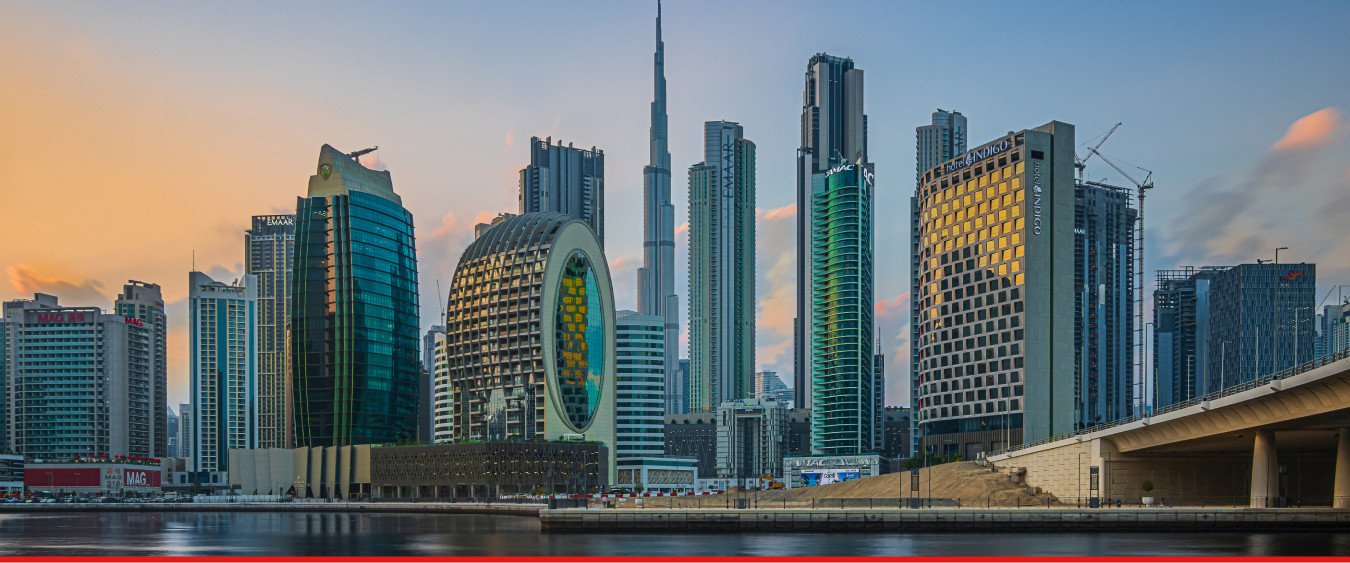 Are you interested in buying or renting a commercial property in the UAE? Just like with choosing the right location in the UAE for your enterprise, many factors go into investing in commercial properties in the UAE. With that in mind, as company formation experts in the Emirates, we’ve gathered everything you need to know to make the process efficient.
Are you interested in buying or renting a commercial property in the UAE? Just like with choosing the right location in the UAE for your enterprise, many factors go into investing in commercial properties in the UAE. With that in mind, as company formation experts in the Emirates, we’ve gathered everything you need to know to make the process efficient.
But first, let’s talk about VAT in the UAE and its implications for commercial property
The UAE has only had a five per cent value-added tax, or VAT, in effect since 2018 but there are many classes of goods and services that receive an exemption from VAT and, therefore, do not pay any VAT. Unfortunately, commercial property transactions are not among the exempted categories. What are the implications for you as you look for commercial office space or a warehouse? Here’s what you need to know.
VAT registration for buying or renting a commercial property in the UAE
There is no distinction between purchasers and tenants when it comes to VAT on commercial property in the UAE. Landlords issue a VAT invoice on top of their bill for the annual lease payment. The seller would need to issue a tax invoice on top of the listed purchase price when someone is investing in UAE commercial properties. The only exempted category concerning commercial real estate transactions in the UAE VAT legislation is if you sell the property with a tenant occupying it and staying there as long as both the buyer and seller are registered for VAT.
In practice, both you as a purchaser or tenant and the seller or landlord would have to undergo the VAT registration process. If a seller is over the required tax threshold of Dh375,000 every year, they would have been required to undergo VAT registration. The requirement for VAT registration is for both property management (corporations) and for individuals who own the spaces.
While both parties must register with the VAT system, the purchaser has to initiate the declaration and provide the required information into the e-Services portal the Emirati government has in place to execute the registration process. Then, when making your VAT declaration, you would have to enter the amount for the transaction, with sellers declaring it as output while purchasers declare it as input. If all the details surrounding VAT appear complicated, don’t worry. Our team can take care of processing your VAT registration.
Investing in UAE commercial properties: factors to consider
Just like in any location, the place you choose as your head office can have implications on your operations, and to a certain extent, your reputation as a firm. There are also local regulations that you will need to keep in mind to make sure this decision is viable. You’ll also want to make sure you choose the right location because that will make it easier to run your business and avoid it becoming a hindrance.
Three types of rights concerning property
One of the peculiarities about Emirati real estate law is that it does not designate a lease as interest on the land, and instead views it as a right for a person. If you’re interested in a long-term contract, the only places where you can let commercial properties are the designated investment areas in Dubai and Abu Dhabi. Those rules are in place for non-Emiratis who are not citizens of any Gulf Cooperation Council country and for corporations that have any ownership interest from a foreigner under that definition.
That means that a lease is just one of these classifications, with the others being usufruct and mustaha. What are they? Usufruct is defined in the UAE Civil Code under Article 1333. It is “property right in favour of the usufructuary to use property of another and to exploit it provided that it remains in its original condition.” This status allows tenants to lease the property as long as it remains in its original condition save any wear and tear that could reasonably come with the use of it and generally has a maximum term of 50 years. As for mustaha, Article 1353 states that it is “a right in rem conferring upon the owner thereof the right to build a building or to plant on the land of another.” The difference between someone holding a mustaha and a usufruct is that a mustaha grants the leaseholder the opportunity to develop. In contrast, you cannot carry out development in a usufruct.
Short-term leasing vs. long-term leasing
How do the two largest emirates define a long-term lease? In Dubai, a long-term lease is of at least ten years, while Abu Dhabi defines a long-term lease as one that is of at least 25 years. Abu Dhabi does not have any formal regulations for short-term leases. Still, the municipal authorities have deemed any lease to a foreigner of four years or more as usufructuary, making them ineligible to rent outside the designated investment area. In Dubai, all leases of under ten years have to be registered using the Ejari system, and the process includes the standard application and other supporting documents. As for a standard tenancy agreement in Dubai, it has to be a minimum of 12 months, and you can extend it automatically if both the tenant and landlord agree to an extension.
Pay attention to shell/core vs. fitted
This factor requires you to carefully look at the fine print when it comes to choosing a space. Commercial space is generally classified as a core or shell unit, which means that you would rent the space without any finishings or fixtures. There is now an increased offer of fully-equipped commercial spaces given the competitive commercial real estate market so landlords can charge higher rent. If you rent an empty office space, you’ll have to consider those extra furnishing costs as you set a budget for your company setup.
Want to change up the interior in a Dubai commercial space? You’ll need permission. If you would like to make any changes to the inside of your space, you will need to obtain a Non-Objection Certificate (NOC) from all relevant stakeholders, such as your landlord, the Dubai Municipality, the manager of the building and if you set up in a Free Zone, the pertinent authorities.
But before you do anything, you need a trade licence
Once you’ve found the perfect location for your new office, there’s going to be one thing that stands in the way of obtaining your Ejari and hooking up utilities. That’s the provisional trade licence you receive upon the establishment of your company. The trade licence can be from one of Dubai’s various Free Zones, or the Mainland if you are choosing to establish your entity there while adhering to the ownership stake requirements.
When you’re ready to go through the process to choose your commercial property, our team at Europe Emirates Group can assist you through VAT registration and the subsequent declarations for proper compliance with your commercial real estate rental or purchase. If you would like to get started with the process, please don’t hesitate to contact us today.
Written by
Gareth Jones
Fee Generation Manager, Europe Emirates Group




